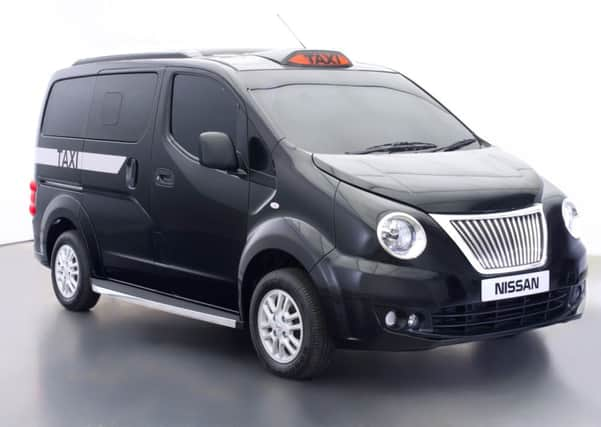Nissan hopes converted van will grab market share


The group, which already supplies taxis in Barcelona, New York and Tokyo, said the new petrol-engined taxi would be based on its NV200 multi-purpose van and should be on the streets by the end of the year.
Executive vice-president Andy Palmer said: “We have worked closely with the [London] mayor’s office and interested parties to ensure that Nissan’s new cab not only raises the bar for both driver and passenger, but is also as instantly recognisable as its legendary forebears.”
Advertisement
Hide AdAdvertisement
Hide AdThe vehicle was adapted to give it round headlamps, a re-modelled grille similar to those found on the traditional London black cabs and LED lighting to make sure the yellow taxi sign is clearly visible.
It will also adhere to the strict regulations for London’s Hackney Carriages, or black cabs, including a 25-foot turning circle enabling it to turn around in London’s narrow streets.
Once on the road, Nissan will compete against the dominant manufacturer, LTC, which was saved by Chinese car maker Geely last year. Former owner Manganese Bronze fell into administration in October 2012 and Geely, which also owns Volvo, plans to invest £150 million into LTC over the next five years.
The other supplier of London-licensed cabs is Eco City Vehicles, which sells converted Mercedes Vito people carriers.
Transport for London said there were almost 23,000 black taxis licensed to operate in the capital at the beginning of January, with the Mercedes Vito accounting for 2,177. The rest are made by LTC.
Steve McNamara, the general secretary of the Licensed Taxi Drivers’ Association, said the new taxi would be welcomed by the industry because it would be cleaner than the traditional diesel cabs.
Industry rumours have suggested that it will also be cheaper than its competitors. Nissan said it also hopes to have an electric taxi on the streets of a British city next year.